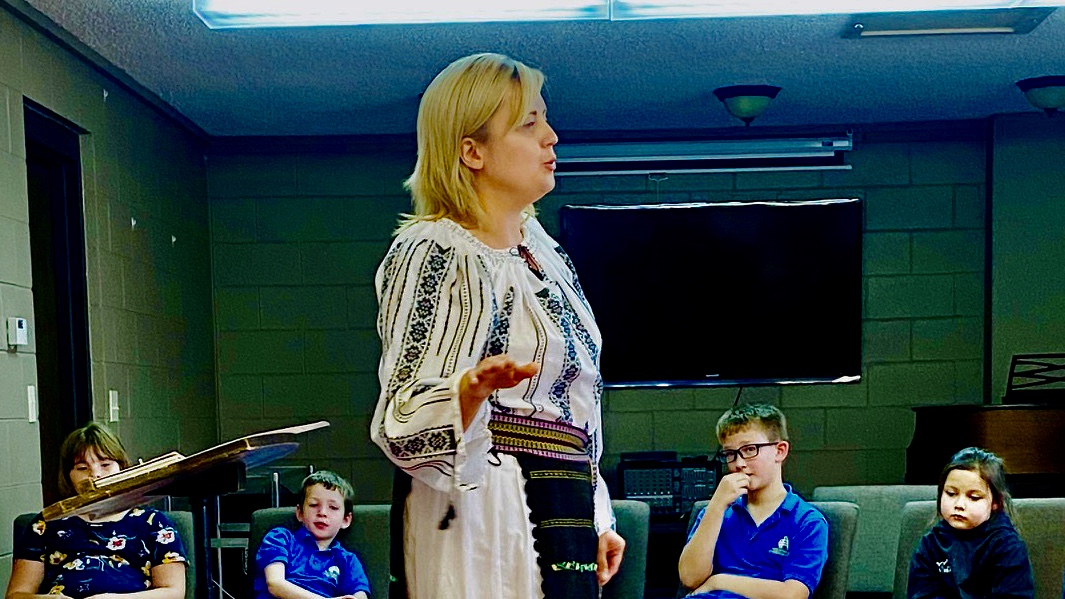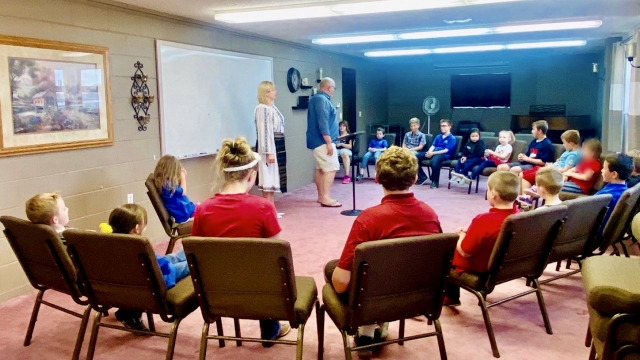By Nathan Brown … A few years ago, I wrote a chapter in a book about what faith means in the context of following Jesus. I carefully built the distinctions between believing about Jesus, believing in Jesus and—more simply but deeply—believing Jesus. I thought this was a clever way of explaining it, particularly the experimental aspect of seeking to live and follow in the ways that Jesus taught in order to know more of who and what He was about—until I was talking with a friend about the formulation that I had set out in the chapter and he responded, “Oh, you mean trusting Jesus.”
“Yes . . . yeah, that’s . . . exactly . . . what I meant,” I stammered a reply, suddenly realizing that I had not invented any new or particularly clever insights, even if my distinctions had helped me understand the question I had been wrestling with through writing.
This brief snippet of conversation stuck in my mind. Not only is it a helpful reminder of my need for humility, but I have also continued to reflect on the nature of faith, belief and trust. And, more recently, I have been prompted to think that there might still be more to understand about what it means to believe.
The New Testament word that we most often read as faith is pistis. And like many of the Greek words that make up the original text of our Scripture, the word does not offer a direct match to a single English word. This has been a topic of renewed study by theologians in recent years, particularly in the context of different ways of talking about what we describe as the Gospel. One of the vital rediscoveries of the Reformation was that salvation comes “by faith”—as Galatians put it, “The just shall live by faith”—but a more recently-debated question has been what the Bible means when it talks about “salvation by pistis.”2
I understand that this might be primarily of interest to theology nerds, but allow me a couple of short paragraphs to set out the parties and then we can get to the practical implications for why this discussion matters.
Continuing to argue for the more commonly accepted “salvation by faith,” meaning accepting the death of Jesus for forgiveness of our sins, are voices including John MacArthur, John Piper, R.C. Sproul, Albert Mohler and others associated with organizations including Together for the Gospel and The Gospel Coalition. Critiquing the narrowness of this understanding are voices led by N.T. Wright, Scott McKnight and Matthew Bates, among others.
This second group of “gospel allegiance” theologians point to statements as simple as Jesus’ opening announcement of the “Good News” in the Gospel of Mark: “The Kingdom of God is near! Repent of your sins and believe the Good News!” (Mark 1:15). They argue that neither individual salvation nor faith are the gospel, which is encapsulated instead in this announcement by Jesus—and the apostles after Him—that the kingdom of God has come. “Believing, the faith activity, the pistis action, is better understood as the required response to the Gospel.”3 If the Gospel is the announcement of the Kingdom, the pistis is allegiance to this Kingdom—which is a meaning that fits with this original language—and the saving death of Jesus is a benefit that is then applied to those who give their loyalty to this Kingdom.
It might seem a subtle change in wording and emphasis, but significantly this tends to shift the focus away from us to God and His faithfulness—and there are some aspects of this assertion of “salvation by loyalty” that are of interest to Adventist theology.
Practical
Adventists have long talked about questions of loyalty to God and His ways. This has kept us perpetually teetering on the brink of legalism and, in reaction, has seen many in re- cent generations embrace the good news of God’s love and grace as a refreshing breeze. The grace of God is a truth that must not be lost; we are loved by God unconditionally and we are offered the gift of renewed relationship with God freely. We can trust that the thief crucified with Jesus was fully saved in that moment of conversation with Jesus (see Luke 23:40–43).
But we are to receive and accept this gift. And the reality of this acceptance is practical. Jesus’ parable of the sheep and the goats in Matthew 25 seems to challenge a simplistic “saved by faith” argument, until we recognize that this story is not about how people are saved, but about how saved people—those loyal to the kingdom—live, even if demonstrated unwittingly. In His dealings with human beings, God is al- most always less spiritual and more practical than we expect.
Wholistic
Related to this practical understanding of salvation, Adventist theology has insisted that we are whole beings. Our souls are not and never will be separate or detached from our bodies. Faith is a slippery concept when we insist on it as mere intellectual assent, but is truly transformative when understood wholistically: “Saving faith is not primarily interior mental confidence that Jesus died for our sins. Rather, saving allegiance (pistis) faces outward relationally in response to Jesus’ kingship [and] is inescapably embodied.”4 Wholistic faith is not something we do only with our minds or hearts, but also with our hands and feet, voices and bodies.
As James would urge the early believers, faith without works is dead in the same way as a body without works is dead (see James 2:26). But there is only one order to this equation: a dead body does not come to life by action, but there will be action of some kind if there is life. So, works do not initiate or replace faith, even if we might fool others or even sometimes ourselves. But we should expect that true faith—allegiance and loyalty—will lead to action as fits our time, opportunity and resources.
Apocalyptic
Focusing on the book of Revelation, Adventists have focused on a choice between allegiances to opposing forces amid a great and ongoing conflict between good and evil. With the growing urgency of the end times, the call is to give worship and loyalty to God rather than following the forces of evil in this world and the spiritual realm, defeated though they be (see Revelation 14:6–12). But there is a sense in which the whole of the New Testament presents an apocalyptic call and claim on our allegiance. From the first announcement that the Kingdom is near to the description of its final fulfillment (see Revelation 21 and 22), the central claim is that Jesus and His Kingdom offer an alternative inaugurated and inevitable reality for our lives and our world. This was also the content of the first proclamations of Jesus’ followers: “So let everyone in Israel know for certain that God has made this Jesus, whom you crucified, to be both Lord and Messiah!” (Acts 2:36). Choose a side—they urged— turn around, give your loyalty to the One who is the true Lord of all people and all creation.
Believing Jesus
So, I have come to appreciate more of my earlier formulation of believing Jesus. Yes, trusting Jesus is an important aspect of this posture of humble faith. But giving allegiance to Him and practicing loyalty feel like they include this and more. Loyal to the reality of Jesus, we embody the good news of the Kingdom to others, we seek to live in the way that He taught—and we trust Him to care for our salvation. Responding to the faithfulness, grace and love of God, we step out into our world as citizens of the kingdom into which we have been invited. As agents of goodness, truth, beauty, justice, healing and hope. As ambassadors of Him.
–Nathan Brown is a writer and editor at Signs Publishing in Warburton, Victoria, Australia. Check out the website for Nathan’s newest book, “Of Falafels and Following Jesus” at www.FalafelsandFollowingJesus.com. Email him at: [email protected]
References
1See Why I Try to Believe (Signs Publishing, 2015), Chapter 6, “Believing Jesus.”
2For an extended discussion of the meaning of pistis in the context of Revelation 14:12, see Sigve Tonstad’s dissertation published as Saving God’s Reputation: The Theological Function of Pistis Iesou in the Cosmic Narratives of Revelation, Continuum, 2012.
3 Matthew Bates, Gospel Allegiance: What Faith in Jesus Misses for Salvation in Christ, Brazos Press, 2019, page 41.
4Ibid, page 175.


